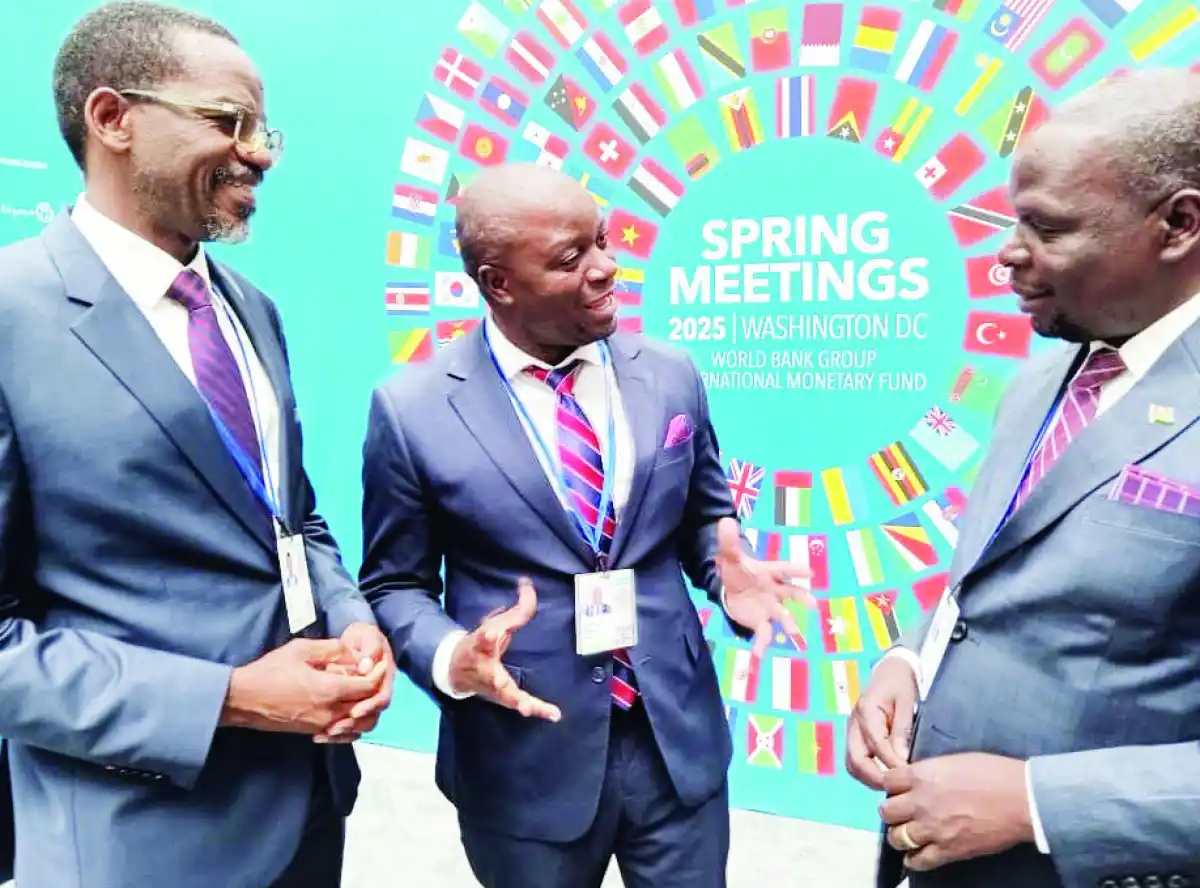
By William Kumwembe in Washington DC, USA:
The International Monetary Fund (IMF) has urged smaller economies like Malawi to work on promoting a stable and predictable trade environment while addressing policy gaps and structural imbalances.
This, the IMF says, would help developing countries to remain afloat amid global markets volatility.
It comes as the IMF has revised downwards its global economic growth projection to 2.8 percent in 2025 and 3 percent in 2026—down from 3.3 percent for both years.
Global headline inflation is expected to decline at a pace that is slightly slower than what was expected in January, reaching 4.3 percent in 2025 and 3.6 percent in 2026.
This is contained in the IMF World Economic Outlook titled ‘a Critical Juncture amid Policy Shifts’ issued on Tuesday on the sidelines of this year’s IMF-World Bank Spring meetings in Washington DC.
Statistics indicate an estimated 3.5 percent growth for Malawi in 2025, with a 24.2 percent average annual inflation.
The Bretton Woods institution hints at declining global growth, saying downward risks would intensify as major policy shifts unfold and that this would have a bearing on lower-income economies.
“At this critical juncture, countries should work constructively to promote a stable and predictable trade environment and to facilitate international cooperation, while addressing policy gaps and structural imbalances at home,” it says.
In emerging markets and developing economies, growth is expected to slow down to 3.7 percent in 2025 and 3.9 percent in 2026.
The IMF says the swift escalation of trade tensions and extremely high levels of policy uncertainty are expected to have a significant impact on economic activity.
After enduring a prolonged and unprecedented series of shocks, the global economy appeared to have stabilised, with steady, yet underwhelming, growth rates.
However, according to the IMF report, the landscape has changed as governments around the world reorder policy priorities, with uncertainties climbing to new highs.
In Malawi, key economic inductors, including headline inflation, have remained in the red for a while due to the exogenous and structural challenges.
But in an interview on the sidelines of the spring meetings, Finance Minister Simplex Chithyola Banda expressed optimism for a positive economic outturn this year as pressure cedes.
In a separate interview, Economics Association of Malawi President Bertha Chikadza said the global shocks, which have led to slowed-down growth, could mean reduced trade activity for all countries, resulting in lower economic output.
“In the context of Malawi, this could translate into lower export earnings due to reduced global demand. The US [United States] tariffs issue is also likely to intensify this. Reduced export earnings mean less revenue for the country, which may lead to increased borrowing, both domestically and internationally.
“High debt levels raise interest rates and crowd out the private sector, resulting into further deterioration in growth. Slower global growth also leads to job losses, which may reduce remittances from Malawians in the diaspora, which is one of Malawi’s main sources of foreign exchange,” Chikadza said.
The government projected 3.2 percent growth this year on the back of improved agricultural output.
But in its earlier forecast, the IMF said Malawi’s gross domestic product per capita would drop to $480.6 percent by 2029, from $580 in 2021.








0 Comments